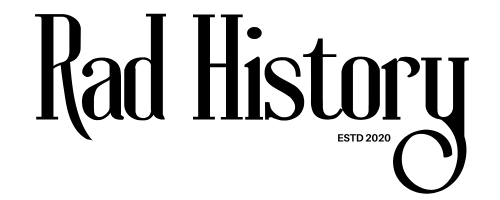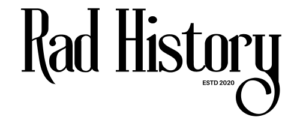Are you freelancing your heart out but wondering where that safety net is when things get bumpy? A growing number of government programs—some longstanding, others recently retooled—are quietly available to freelancers, gig workers, and self-employed creatives who know how to navigate the system. Whether you’re building websites, walking dogs, or flipping vintage finds, your independent hustle might qualify for more perks than you think.
The Freelance Shift That’s Changing the Game
Traditional employment comes with a built-in benefits package: unemployment insurance, subsidized healthcare, paid leave, and retirement contributions. For freelancers, that package often looks like… receipts and a pile of tax forms.
But the rise of self-employment has pushed more systems—federal, state, and local—to adapt. While there’s no one-size-fits-all freelancer safety net, there’s now a patchwork of programs and incentives designed to support solo earners, part-timers, and multi-hustlers.
The result? A low-key but growing list of ways to make the system work for you.
Tax Perks That Feel Like Employee Benefits
Freelancers often dread tax season, but it can actually be one of the most beneficial times of year—if you’re tuned in to the right deductions and credits. The tax code offers more than just the standard “home office” write-off.
But, what are a few standout perks for the self-employed?
- Self-Employed Health Insurance Deduction: You can deduct the cost of health premiums for yourself and your dependents, even without itemizing.
- Qualified Business Income (QBI) Deduction: Many freelancers can deduct up to 20% of their net income, depending on their industry and earnings.
- Retirement Contributions: SEP IRAs and Solo 401(k)s offer generous contribution limits that reduce taxable income.
- Mileage and Equipment: If you use your car or invest in tools for your trade, those expenses could be deductible.
These aren’t loopholes—they’re designed with independent workers in mind. Think of them as your DIY benefits package.
Discounted Training That Actually Matters
Career development doesn’t have to come from expensive courses or influencers promising overnight success. Many government-backed training programs offer practical skills with freelancers included in eligibility.
Are there options worth checking out?
- WIOA-Funded Training: Short for Workforce Innovation and Opportunity Act, this program funds technical and vocational training in in-demand fields. Freelancers can apply.
- Small Business Development Centers (SBDCs): These offer workshops, one-on-one coaching, and startup advice for entrepreneurs at every level.
- Specialty Programs for Creatives and Solopreneurs: Some state-run initiatives support artists, digital content creators, and small service providers with business courses and tech training.
Whether you’re learning bookkeeping or brushing up on SEO, these programs are designed to keep your hustle competitive without draining your budget.
Microgrants and Small Business Loans That Don’t Require a Storefront
You don’t need to rent office space or hire staff to qualify for financial support. Many public and nonprofit organizations offer funding specifically for solo operators, part-timers, and creative entrepreneurs.
- Local Arts and Business Grants: Cities and counties often fund small grants for freelance designers, writers, and performers.
- Kiva Microloans: These zero-interest loans are crowd-funded and available to freelancers, even those with limited credit history.
- SBA Microloan Program: While best known for brick-and-mortar business support, this program also funds small-scale operations—including many freelancers.
In most cases, all you need to apply is a basic business registration and a clear sense of how you’ll use the funds.
Health and Disability Support That’s More Affordable Than You Think
Healthcare is one of the biggest challenges for freelancers—but it’s not as bleak as it may seem. A few lesser-known options can help bring costs down or provide a fallback in emergencies.
- Marketplace Subsidies: Many self-employed workers qualify for tax credits that significantly reduce monthly premiums.
- State-Based Health Plans: Several states offer income-based health insurance options for freelancers and solopreneurs.
- Voluntary Disability Insurance: In some regions, freelancers can opt into public disability programs, offering income protection if illness or injury strikes.
Don’t assume you’re priced out—eligibility often depends on total annual income, not just a few good months.
Retirement Plans That Rival Traditional Jobs
Freelancers often treat retirement as a distant luxury. But with the right tools, you can build a nest egg that looks a lot like what corporate employees get—sometimes better.
- Solo 401(k): Contribute as both employee and employer, with annual limits that exceed most workplace plans.
- SEP IRA: Easier to set up than a 401(k), with flexible contribution rates and low fees.
- Saver’s Credit: A lesser-known perk that provides a tax credit just for saving toward retirement—if your income qualifies.
Translation: You don’t need a boss to give you a 401(k). You can set up your own, and the government will help you save.
Freelancers Union: The Unofficial Support System
While not a government agency, Freelancers Union functions like a benefits hub for independent workers. It provides access to group health plans, legal resources, and advocacy tools—all without charging a membership fee.
Beyond that, the organization offers a few things.
- Contract templates and legal guides
- Insurance products designed for freelancers
- Community support and educational events
It’s like having HR—without the office politics.
Navigating the Bureaucracy Without Burning Out
Let’s be honest: paperwork can be a buzzkill. But freelancers who invest a little time in the setup often find that access to benefits gets a lot easier.
A few steps that make a big difference.
- Register as a business: Even a simple DBA (Doing Business As) opens doors to grants, loans, and deductions.
- Track income and expenses: Use bookkeeping software or spreadsheets to stay organized—especially during tax season.
- Check eligibility every year: Income-based programs often fluctuate, and you may qualify one year even if you didn’t the last.
- Ask for help: SCORE mentors, librarians, and SBDC advisors can walk you through the red tape for free.
The system isn’t always intuitive, but it’s more accessible than it looks.
The New Rules of Freelance Security
The idea that freelancing means giving up all benefits is outdated. As the economy shifts and more people choose (or stumble into) self-employment, systems are catching up—slowly, imperfectly, but surely.
Today’s freelancers have more tools, more programs, and more opportunities to build stability than ever before. It’s just a matter of knowing what to claim.
You Don’t Have to Do It All Alone
Being your own boss doesn’t mean doing everything yourself. Whether you’re designing logos, editing videos, or running a one-person consulting firm, you’re part of a growing workforce that’s reshaping how independence and support coexist.
So yes—there’s a safety net. It might be stitched together with tax codes, state plans, and overlooked microgrants, but it’s there. You just have to grab the right thread.





